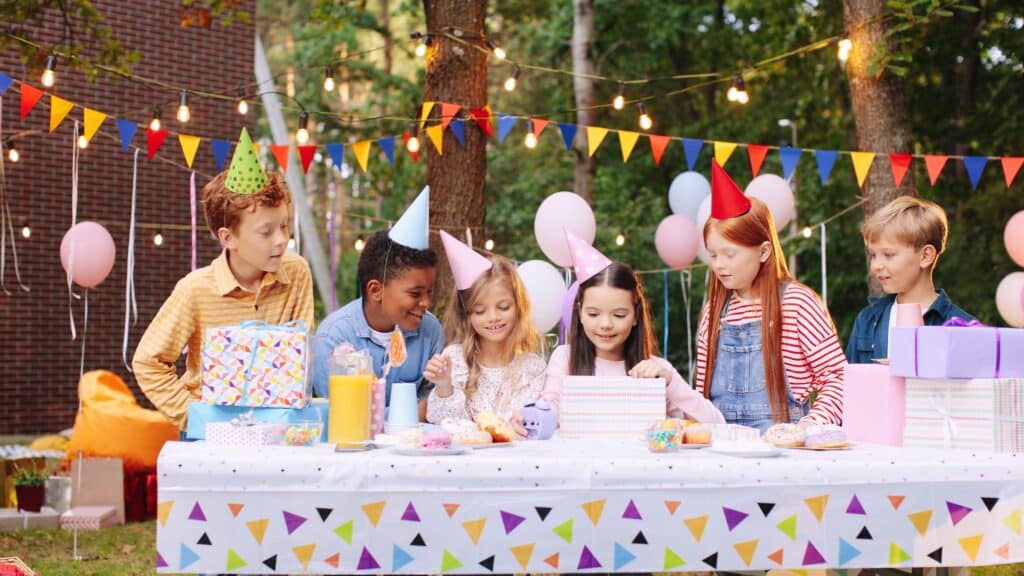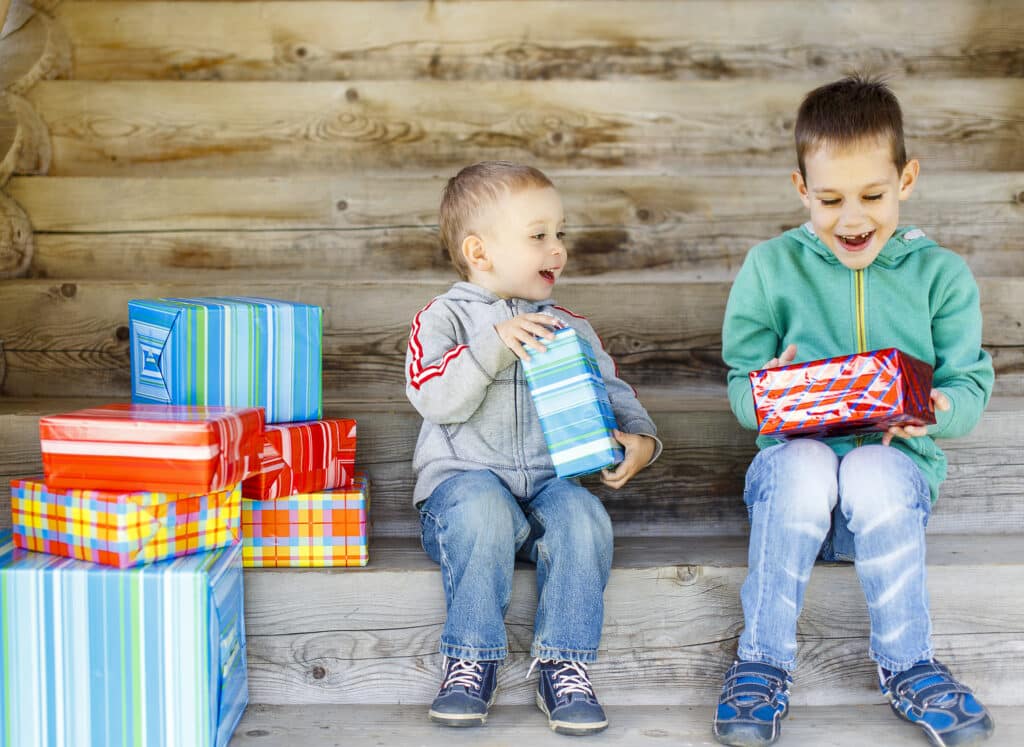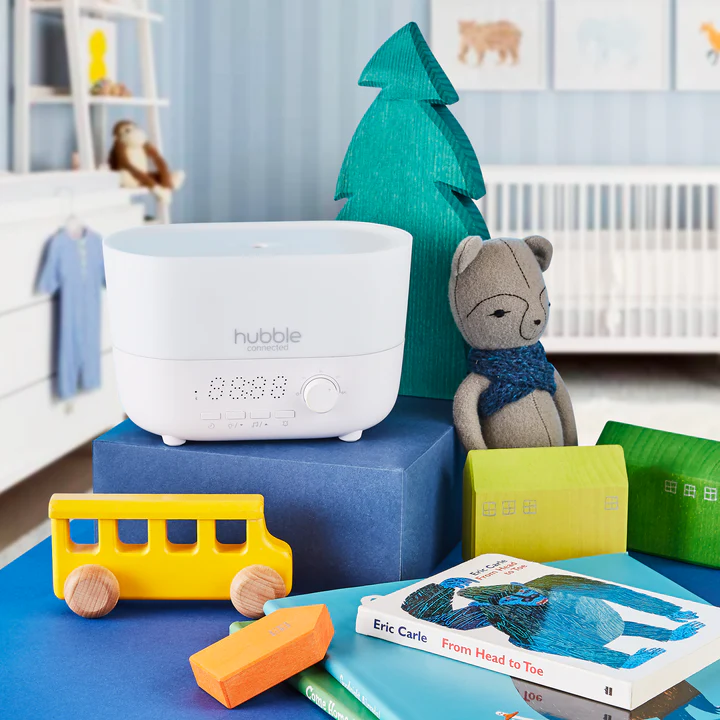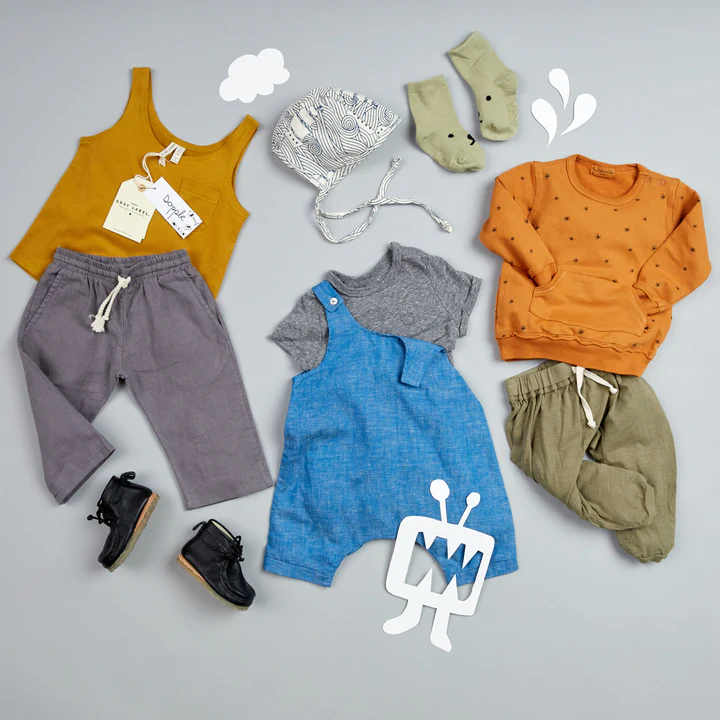"I'm thankful to be able to have three and be the best dad that I can be. It's the best title you have in this life.”
Kylie Kelce is sparking quite the parenting debate online.
During the Feb. 20 episode of her “Not Gonna Lie” podcast, the 33-year-old mom of four was sharing her thoughts on kids’ birthday parties when she revealed one parenting trend that she highly disagrees with.
"I am vehemently against the idea of other kids getting birthday presents on a child's birthday," she said of the growing “sibling gifts” trend that sees parents give gifts to their children on their siblings’ birthday.
RELATED: Can the color of your child’s swimsuit prevent them from drowning?
"Our family knows, no one else is receiving a birthday present for Bennett's birthday. Everyone gets a special day,” she added, per People.
Kylie Kelce, who shares four daughters — Bennett, 2, Elliotte "Ellie," 3, Wyatt, 5, and Finnley “Finn,” born March 30 — with husband Jason Kelce, said it feels “very participation trophy-esque and not happening.”
She also doesn’t like that it “reduces your birthday” and teaches the sibling the wrong lessons.
"I think it teaches them to a degree that just because someone's getting presents doesn't mean you get presents,” she argues. “It’s not their birthday. It’s your birthday.”
Many parents took to the comments to share how much they agreed with Kylie Kelce’s sentiment.
“I 100% agree with you Kylie,” one fan wrote in the comment section of Kylie Kelce’s YouTube video. “I never saw this until I was invited to a couples child's birthday and the other sibling received gifts.”
“I take it a step further and don’t allow my kids to get into the birthday kids’ face when they’re opening gifts (and Christmas),” another fan wrote.
But while many parents agreed, others find themselves on the other end of that spectrum.
New survey shows just how divided parents are on ‘sibling gifts’

In early March, BabyCenter polled more than 500 users to see what they thought of giving siblings a gift on their other child’s birthday.
The results, which were published by BabyCenter on April 8, showed a near-even split among parents.
In fact, 54% of the respondents said they turn to this strategy on their child’s birthday — including 32% who “always” give gifts to the birthday child’s siblings and 22% who do it “occasionally.”
The remaining 46% of parents agreed with Kylie Kelce and would never give in to the popular trend.
While there’s no right or wrong answer here — as it primarily boils down to preference and circumstance — experts are weighing in on the many pros and cons that come with giving siblings a gift on birthdays.
On one hand, sibling gifts help avoid temper tantrums, jealousy, envy, resentment, whining and the feeling of being left out that many children feel on their siblings’ birthday.
“Sibling gifts [also] can subtly teach [the birthday child] about generosity and sharing the spotlight, as well fostering empathy and kindness,” says clinical psychologist Kanchi Wijesekera, PhD, per Parents.com.
On the other hand, as Kylie Kelce alluded to, sibling gifts take away from what makes a kid’s birthday so special — and often means missing out on teaching an important life lesson that all children need.
“By avoiding jealousy…parents may miss valuable opportunities to teach children how to cope with disappointment, share attention, and navigate complex feelings,” Wijesekera added.
At the end of the day, it’s up to each individual parent to do what they feel is best for their family.
Alternative ways to make siblings feel more included on birthdays

Parents can’t blame their children for wanting to be the center of attention.
After all, children are “naturally egocentric,” says Calgary parent educator Tanya Bartram, per Today’s Parent, and they often “feel put out when someone else is getting all the attention.”
But just because tears are to be expected doesn’t mean parents have to give in to the “sibling gifts” trend — unless they want to, of course.
@crazychrisssty Am I wrong?
♬ original sound - Christy
For those who don’t, there are plenty of other ways to make children feel more included on their sibling’s birthday, many of which work just as well — if not better — than the popular trend.
Here are a few tips and ideas to try for your child’s next birthday.
10. Acknowledge the non-birthday sibling’s feelings
It's perfectly natural for siblings to feel left out on their brother or sister's special day.
But instead of dismissing these emotions and replacing them with a gift, many experts suggest taking a moment to validate their emotions and helping them learn to cope with and overcome the emotions.
Saying things like, "I understand it's hard to watch your sister open presents when you aren't getting any,” lets them know that their feelings are warranted and understood.
At the same time, experts agree that children must learn that some days aren’t about them — and this is the perfect opportunity to teach that lesson.
"Being sensitive and responsive to our kids' feelings doesn't mean we have to protect them from painful feelings," says clinical psychologist Eileen Kennedy-Moore, Ph.D., per BabyCenter.
"Empathizing and helping them cope is more empowering for them than trying to avoid all pain,” she adds.
9. Give the non-birthday sibling a treat bag instead of a gift

A small treat bag can help parents find middle ground between giving a gift, but not stealing the spotlight.
Unlike actual presents that might detract from the birthday celebration, a modest treat bag with stickers, a small craft or a favorite snack acknowledges the non-birthday child without turning it into a big ordeal.
And since most parents don’t do goody bags at birthday parties anymore, it’ll be a unique “gift” to the non-birthday sibling.
This approach works particularly well for younger children who struggle with the concept of waiting for their turn. It gives them a small win now while still allowing you to shine the spotlight on their sibling.
8. Buy the birthday sibling a gift that can be shared

Watching their sibling open a present is one thing — but jealousy doubles when it’s something they can’t play with, too.
That’s why some parents suggest giving the birthday sibling a gift that can be shared with other siblings in the house, including board games, building sets, outdoor equipment or creative supplies.
There’s a good chance all siblings would be happy if you gave one of them a trampoline for their birthday.
The birthday child receives the honor and excitement of unwrapping their own gift — as well as ownership over that gift — while the non-birthday siblings gain the benefit of a new activity they can enjoy together.
This is designed to be a win-win situation, but only if you can find a gift that satisfies everyone.
7. Give the non-birthday sibling a role in the birthday party

Assigning special "helper" roles gives the non-birthday child a sense of purpose and importance.
While this won’t always equate to the excitement that a gift would bring, the regained sense of purpose can be used as a teaching moment to help your child cope with the fact that it’s not their special day.
Depending on their age, the non-birthday sibling could help decorate for the party, greet guests, pass out cake (or presents, if you really want to challenge them) or lead games.
One study found that children as young as two years old can help “assist with common household tasks.”
You can also make the non-birthday sibling feel extra special by inviting them on secret “missions” that the birthday child can’t know about as you plan and prepare for the party.
Picking up balloons, picking out a cake, wrapping presents (if they’re old enough to keep the secret), making invitations — anything to make them feel included in the special day.
The non-birthday sibling gets the attention they desire, while also learning the importance of supporting others on their special day.
6. Remind the non-birthday sibling that they have a birthday too

This is the perfect opportunity to teach your child how to wait their turn when it’s someone else’s time.
Saying something like, "Today is Jake's special day, and in three months, it will be your turn!" helps them understand that it’s not their time now, but it will be soon.
Parents can reinforce this by asking the non-birthday sibling questions about what they would want to do if it were their birthday — which is a great way to start the planning process for when that day comes.
Or, if their birthday recently passed, remind them of all the fun things they did for their birthday.
Chances are the non-birthday sibling was given gifts and entitled to certain things on their birthday that their siblings didn’t benefit from. But since that day has passed, it’s now someone else’s turn to shine.
5. Start a birthday countdown for the non-birthday sibling

Simply telling a young child to wait their turn doesn’t always work — especially for preschoolers.
“Preschoolers don’t have a good grasp of time, and will have some trouble understanding the idea that their own birthdays will come at a later date,” says Bartram, per Today’s Parent.
That’s where a birthday countdown comes in to save the day.
A simple paper chain with links to tear off each day, a calendar with stickers or a digital countdown app gives the non-birthday sibling something to focus on beyond their current feelings of exclusion.
This tangible reminder not only helps them cope with waiting but also builds anticipation for their turn.
4. Remind the non-birthday sibling of the things they do get

Just because your child doesn’t get a gift for their sibling’s birthday doesn’t mean they’re left out.
After all, most kids’ birthday parties come with pool time, bounce houses, delicious food, cake, time with family and friends — and a break from their normal day-to-day routine.
Those are all things that the non-birthday child can benefit from on their sibling’s birthday.
Parents can make it extra special by starting family traditions that happen at every birthday party — whether it be certain games or unique venues to have the party.
The birthday sibling might be the only one getting presents, but it’ll still be fun for everyone else!
3. Allow the non-birthday sibling to invite a friend to the party

Sometimes, children just need a good distraction to keep their mind off the fact that it’s not their day.
Allowing them to invite a friend to their sibling’s party acts as the perfect distraction — giving them someone to play with that has similar interests and intentions.
Their friend’s presence helps create a buffer zone where they can enjoy the festivities without feeling like a mere spectator that’s expected to participate without being the center of attention.
The key is to limit the non-birthday sibling to one friend — after all, it’s their sibling’s party, not theirs.
2. Hand out special privileges instead of sibling gifts

Instead of giving the sibling a gift, try handing out special privileges that the birthday sibling is willing to give up.
Make it clear to the birthday sibling that this is still their special day, but they're generously allowing certain concessions to ensure the non-birthday siblings aren’t left out of the fun.
For example, if your children constantly argue over who gets the coveted window seat in the car or who sits next to mom at dinner, have the birthday child give their sibling a "Premium Seating Pass.”
The pass can be good for a day or one week — or it can be redeemed at a later date.
Other popular privileges include choosing the family movie, selecting the dinner menu for a non-birthday night, having an extra 15 minutes of screen time or getting first pick of chores from the chore chart.
1. Give the non-birthday sibling a break when emotions rise

Sibling jealousy at a kids’ birthday party is inevitable — especially with younger children.
Sometimes, it doesn’t matter how hard you try or how out of the way you go to try to make everyone happy, there’s just no getting over that hump. Eventually, chaos will unfold.
But when tears or tantrums erupt, giving the non-birthday child a temporary escape can help.
A quiet break in another room with a parent, a short walk outside, or even permission to spend time alone with a favorite activity can act as the perfect distraction while the birthday sibling opens presents.
And as some experts say, sometimes a small gift is the most practical solution.
ALSO ON MOD MOMS CLUB: Expert parenting advice for supporting teens through the college admissions process
“The younger the child, the less reasonable he can be expected to be and, for a three-year-old, a small gift may help,” says Bartram, per Today’s Parent.












